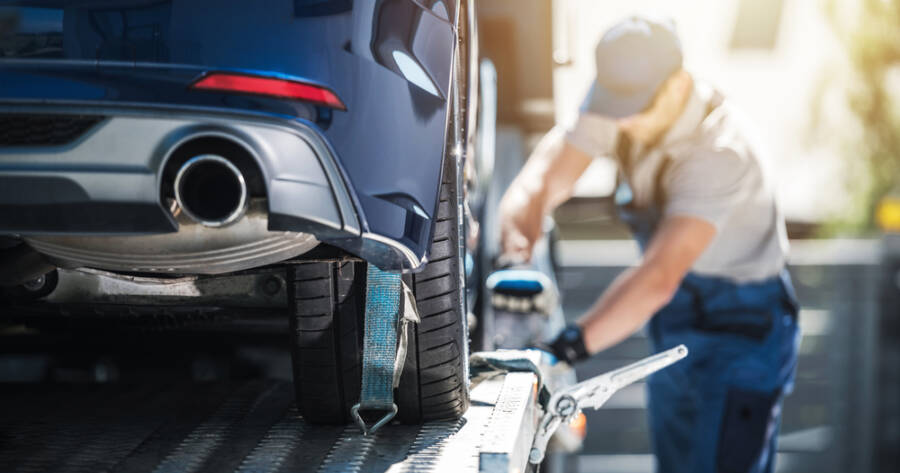Buying a repossessed car can be a smart way to save money, but it requires careful attention to detail. From understanding the auction process to spotting hidden damage, making the right move means knowing what to look for. With the right approach, a repossessed vehicle can offer serious value without compromising quality or reliability.
Where to Find Repossessed Cars
There are several places where you can find repossessed cars for sale. The most common sources are auctions, banks, and dealerships.
- Auctions: Many repossessed cars are sold at auction. You can find both in-person and online auctions. At these events, cars can sell for much lower prices than at traditional dealerships. However, it’s essential to remember that auctions often sell vehicles as-is, meaning no guarantees.
- Banks and credit unions: Lenders often sell repossessed cars directly to the public. You can contact your bank or credit union to see if they have any repossessed vehicles for sale. One benefit of buying from a bank is that they may offer financing for the purchase.
- Dealerships: Some car dealerships specialize in selling repossessed cars. These dealerships often provide more inspection and repair services than auctions. This makes them a safer option for buyers who want peace of mind.
Benefits of Buying Repossessed Cars
There are several advantages to buying repossessed cars. The most significant benefit is the potential savings.
- Lower prices: Repossessed cars usually cost much less than similar models sold at dealerships. Lenders are motivated to sell these vehicles quickly, often resulting in lower prices for buyers.
- Variety of options: Since people default on all types of vehicles, you can find various makes and models, including newer cars. This gives buyers a broad selection to choose from.
- Quick turnaround: Because lenders want to recoup their losses as soon as possible, repossessed cars often sell quickly. This means you could get a great car in a short amount of time.
However, you should weigh these benefits against potential drawbacks, such as possible damage or lack of service records.
Things to Look Out For When Buying
While buying a repossessed car can save you money, there are important factors to keep in mind.
- Condition of the car: Repossessed cars are often sold as-is. Some vehicles may have mechanical issues or wear and tear from neglect. Before purchasing, have the car inspected by a mechanic. You can also request a vehicle history report to check for accidents or previous repairs.
- No warranty: Most repossessed cars don’t come with a warranty. This means you will be responsible for any repairs needed after purchase. Consider this risk when deciding if the lower price is worth it.
- Unknown history: Since previous owners may not have taken care of the car, it’s crucial to investigate its maintenance history. Ask for records if available, and be cautious if none are provided.
- Bidding wars at auctions: If you’re buying at auction, be aware that other bidders may drive the price up. Set a firm budget for yourself and avoid getting caught up in bidding wars.
How to Make a Smart Purchase
When purchasing a repossessed car, follow these steps to protect your investment.
- Research the market value: Before bidding or making an offer, research the market value of the car you’re interested in. This ensures you don’t overpay for the vehicle. Use resources like Kelley Blue Book or Edmunds to compare prices.
- Inspect the vehicle: Always have the car inspected by a trusted mechanic. Even if the car looks fine, there could be hidden issues that might cost you later. If possible, take the car for a test drive to get a feel for how it runs.
- Check the vehicle history report: Use services like Carfax or AutoCheck to get a detailed history of the car. This report can reveal important information like past accidents, repairs, or any outstanding recalls.
- Be ready for repairs: Since repossessed cars are usually sold as-is, be prepared for the possibility of repairs. Set aside some of your savings to cover any immediate fixes the car might need.
Learn More About Buying Repossessed Cars
Buying a repossessed car can be a good deal, but it requires careful consideration. Make sure to do your homework, inspect the vehicle, and set a budget to avoid overspending. By following these steps, you can find a reliable repossessed car and avoid unexpected problems down the road.
When done right, purchasing a repossessed car can be a great way to get a vehicle at a lower price. Just remember to balance the risks and benefits to ensure you’re making a smart decision. With careful planning and research, you could drive away with a bargain that suits your needs.
